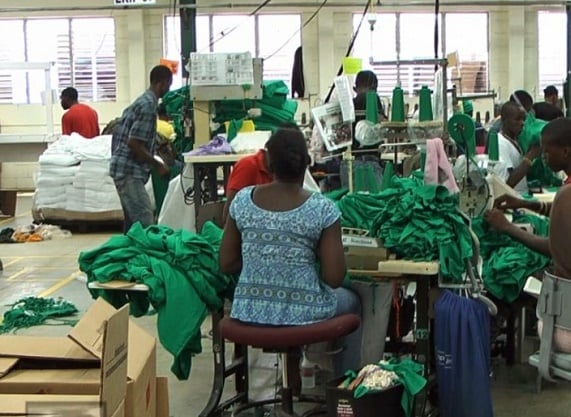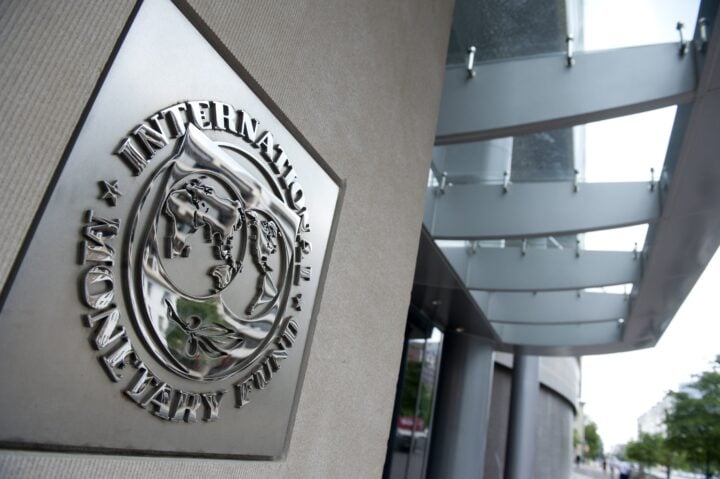Who is thinking about small businesses in Nigeria?
In June 2016, I finally summoned the courage to challenge the World Bank’s Ease-of-Doing-Business Index. I mean, who was I, a ‘motor park economist’ as Governor Fayemi (perhaps fondly), and those guys who responded to me from the Osinbajo camp (disdainfully) called me. I will write about ‘motor parkism’ in economics someday down the line but suffice to say I must have inherited the moniker from Peter Alexander Adione-Egom, fiery Guardian columnist of blessed memory. I forge ahead, despite my defective education. I keep learning daily to cover for my defects anyway.
So, I felt there was something wrong with the index. It just wasn’t ministering to me. I looked a little closer and didn’t like what I saw. I realized the index is great if a foreign company wanted to come to Nigeria, but almost useless when a Nigerian company is trying to survive and scale here. I suggested to the government that perhaps we should develop an alternate index. Nothing happened. I know though, that it is impossible for the government to show that they have alternate ideas from what the multilateral agencies propose. These ‘donors’ breathe down their necks and they dare not step out of line. Still, it is what it is and we who are outside their loop and privileges must continue to think and fight for our country.
The index contains ten subindices by which a country is judged whether it is doing better in encouraging businesses. These are:
- Ease of starting a business
- Ease of dealing with construction permits
- Ease of getting electricity – procedure, time, cost
- Ease of registering property
- Ease of obtaining credit
- Protecting minority investors
- Ease of paying taxes
- Ease of trading across borders
- Enforcement of contracts
- Resolving insolvency
Upon closer scrutiny, I believed, right off the bat, that numbers 2, 4, 6, 7, 8, and 10 are rather tangential. But it was index number 6 (protecting minority investors) that gave the whole index away as something coined largely for foreign companies. Whereas it is great to encourage foreign investors and the index could be maintained for that purpose, I believe that at least part of our focus should be on making the lives of local investors a little easier too. Imagine number 10! I cannot imagine opening a business as a local and thinking about the ease of declaring bankruptcy or insolvency. Note also, if this index, as is, is meant to help foreign investors, why include ease of obtaining credit? The case of Etisalat’s challenges in Nigeria revealed that oftentimes, these foreign investors that we bring in, end up putting so much pressure on our financial system rather than bringing in their own money. What we want is capital inflow and a bit of expertise for our people. Isn’t that right?
Advertisement
Anyhow, I decided to develop my own index around what really matters for Nigerian businesses. I think we should encourage our own people to begin to fill in the space. For now, very few Nigerians are in the space where value is being added to any products. Yet, our dependency on foreigners must be reversed. I don’t believe that there is any big deal in beginning to strive to do what foreigners have always done for us. I think that to save ourselves from this long-dreaded cataclysm we need to start to move into some spaces.
If I am to think of what issues disturb, delay, and destroy businesses in Nigeria today (owned by anyone indeed), and which have to be tackled urgently, they are:
- Energy – availability and cost
- Infrastructure
- Security
- Finding and retaining good staff
- Transparency in procurement. Including corruption of all sorts
- Sticking to the rules. Better and proper regulation
- High rentals and cost of properties
- Influence of oligopolies/monopolies
- Crony capitalism
- Bad reputation of the country and its people
- Low purchasing power and per capita income
Most of the points are self-explanatory, and of course, I adopted some of the metrics of the World Bank EODB which I believe is only partially correct. Businesses do need energy to stay alive anyhow you slice and dice it. Right now, the tariffs have gone through the roof and the DisCos are threatening more hikes. Diesel cost is also killing companies. But that is not the whole story about businesses. Neither is access to credit – another valid metric that I adopted in my own EODB for Nigerian businesses. Infrastructure availability beyond energy is a problem. Many businesses crumble because of the difficulty in accessing them, and the general malaise around infrastructure is a major factor for success or failure. What about insecurity? Without this, nothing moves. In fact, with the insecurity, many people prefer to stay at home and even purchasing power as well as eagerness by consumers to spend. One thing that most analysts don’t talk about as often as they should, is the ease of finding good staff and retaining them. Every Nigerian wants to ‘blow’ and no one is willing to put in fairly good time learning and helping to grow a small business. These days, only women stay for a while. Boys/men are restless. And many even look for how to defraud organizations.
Advertisement
I have included transparency in procurement. This is meant that opening a company at the Corporate Affairs Commission is no big deal but getting jobs and businesses is the ‘gbogah!!’. However, whether in the private or public sector, procurement is a very opaque system as procurement officers have their preferred choices (some even own companies that get the contracts). In almost every situation, businesses encounter situations where they have to pay huge bribes. This corruption metric is one thing that our government must try to wrestle down. It will be a good thing to measure how such incidences reduce even if we know we cannot eradicate them. The private sector is also equally as corrupt and almost as inefficient as the public sector. Nothing goes for nothing in Nigeria. I added better regulation because this is one thing that precludes our companies from attaining very high standards to compete internationally. Nigerians have a very wrong understanding of regulation as regulators turn their platforms into opportunities to milk small companies dead. Local businesses now do everything to avoid regulation, including forging certificates, faking things like NAFDAC numbers etc; actions that later come to bite their businesses. What is more? Many of our large businesses whom many look up to are fond of owing contractors for years until those small businesses collapse. Should I mention names?
There are other real issues that hold Nigerian businesses down, as I have captured above, such as our generally bad reputation as a people and a country. This means that, unlike the foreign companies for which the WB EODB report was designed, our indigenous businesses could never access foreign countries easily, thus limiting their growth. Also, our bad reputation (solidified by some of the terrible things some of our people do abroad), excludes Nigeria from legit capital inflows from foreigners and our diasporans alike, thereby limiting opportunities for business growth. Many countries around the world are hostile to Nigerians and don’t give our young ones visas. This limits the number of ideas that can be imported from abroad via exposure to innovations through travel. I added crony capitalism and the influence of oligopolies because here in Nigeria, most large markets are dominated by oligopolies (such as cement, sugar, salt, wheat, and even crude oil, petrol, diesel and aviation oil). These are guys who will ensure they run out new entrants and have been alleged to have connived to increase prices to the detriment of the polity. Crony capitalism is a situation where those in government often give undue advantage to their cronies, thus unbalancing the playing field and making life difficult for unconnected businesses.
The low purchasing power among the populace is one factor I added to my own EODB index for local businesses. Add to this the increasingly prohibitive rental and property acquisition costs. Landlords are wont to exploit businesses especially if they believe such businesses are doing well. On the flip side, however, generally low purchasing power means that eventually, most businesses will struggle as Nigerians have less and less disposable income. A prosperous citizenry translates to healthy and profitable companies.
I believe that these factors that I have listed may be easier to measure and relate directly to the vast majority of the businesses in Nigeria. I wish some of the points may be adopted and the general idea, refined.
Advertisement
Lastly, I just want to say that the best place for anyone to do business – based on my own experiences and empirical evidence – is in one’s own country. Connections and networks are essential to business anywhere in the world. No one should be deceived that a Nigerian will do better in business in the UK or USA just because the processes for opening businesses there may be less cumbersome than what obtains here. I have realized that the schools you attended and where you worked and who you know have a lot to do with business success because you need doors to be opened for those wonderful ideas of yours. So, in our analysis, we need not scare our younger ones away from doing business in their country. Indeed, here in Nigeria is where the vast opportunities are, and we had better position our growing youths to take full advantage of these opportunities rather than remain vuvuzelas for foreign capital and foreign firms, most of whom are now thumbing their noses at us.
Views expressed by contributors are strictly personal and not of TheCable.







